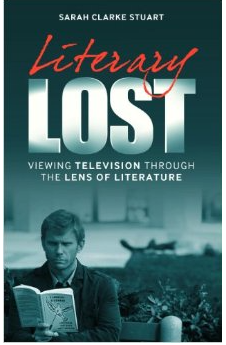
Years ago I caught two episodes of Lost on TV and thought it might be a series I’d enjoy. Only it was aired too late for me, so I gave up. A while ago I discovered Sarah Clarke Stuart’s book Literary Lost, which analyses the use of works of fiction in the series. Those familiar with Lost probably know that far over 70 books are used, mentioned, discussed, and alluded to in the series.
Some of the books are important because different characters read them. Others have influenced story lines. Others have the same themes and motives. The books are mostly literary fiction.
Some of the most important books which are used repeatedly are the following: Heart of Darkness, Alice’s Adventures in Wonderland, Robinson Crusoe, Watership Down, Moby Dick, Lord of the Flies, Our Mutual Friend, Of Mice and Men, A Wrinkle in Time, Ulysses, The Odyssey, The Wonderful Wizard of Oz, The Stand.
Some books that are equally important but not mentioned as often are: The Brothers Karamazov, Slaughterhouse Five, The Third Policeman, The Invention of Morel, Everything That Rises Must Converge.
The Crying of Lot 49 is never mentioned but it’s narrative plays an important role for those trying to understand the end of Lost.
After I started reading the book, I finally also started to watch the series. I must say, looking at it from a literary perspective makes for really exciting watching. With the exception of Adolfo Bioy Casares The Invention of Morel, I think I own almost all the books that are important in the show and have read many. Just last week I finished The Wonderful Wizard of Oz.
Sarah Clarke Stuart writes in Literary Lost that the series’ use of books was so influential that it has turned non-readers into readers, rekindled the interest of some who stopped reading, and has even led to higher sales for some books like Flann O’ Brien’s The Third Policeman.
Lost has also led to special book clubs in which people don’t only discuss the series but the books that are featured. It’s not surprising that there were challenges to read all of the titles.
Sarah Clarke Stuart’s book does more than just add another layer to the viewing experience. It shows that some TV series can offer more than pure escapism and are exciting narratives in their own right. She shows that Lost is a great example of a neo-baroque series:
In the case of Lost’s hyperconscious literary references, “nostalgic reverence” is usually the motive. The on-screen appearance of a book suggests certain themes, while paying homage to that particular work. Furthering the postmodern understanding of Lost, more than one academic observer has identified the “neo-baroque” qualities of the show, using the model that Angela Ndalianis provides in her book Neo-Baroque Aesthetics and Contemporary Entertainment. Intertextuality is a central prong of her neo-baroque construct; she explains that a text’s allusions create “folds” and “labyrinthine” impression. Neo-baroque narratives draw the audience into potentially infinite or at least multiple directions that rhythmycally recall what Focillon labels the “system of the labyrinth”.
Of course there are similar books on other TV series. I’ve got one dedicated to Six Feet Under (Reading Six Feet Under – TV to Die For) and at least half a dozen who study Buffy the Vampire Slayer and one or the other focussing on Veronica Mars.
I know this is a bit of a disjointed post, but I just wanted to share my enthusiasm for the series and the book. I was hoping that someone might be tempted to watch/re-watch Lost and that we might be able to discuss some of the topics and books. Or that those who love the series but were not aware of Literary Lost might pick it up.
I was wondering if anyone has read Bioy Casares The Invention of Morel. It’s the book mentioned in the series I’m most tempted to read at the moment.
Have you watched the series? Did it make you pick up some books?
